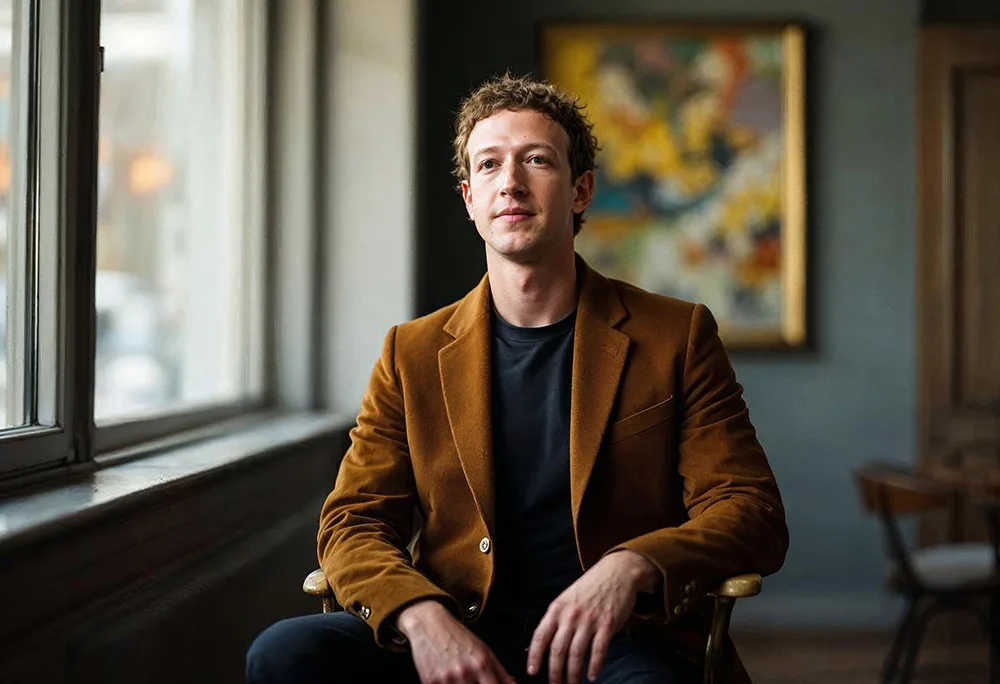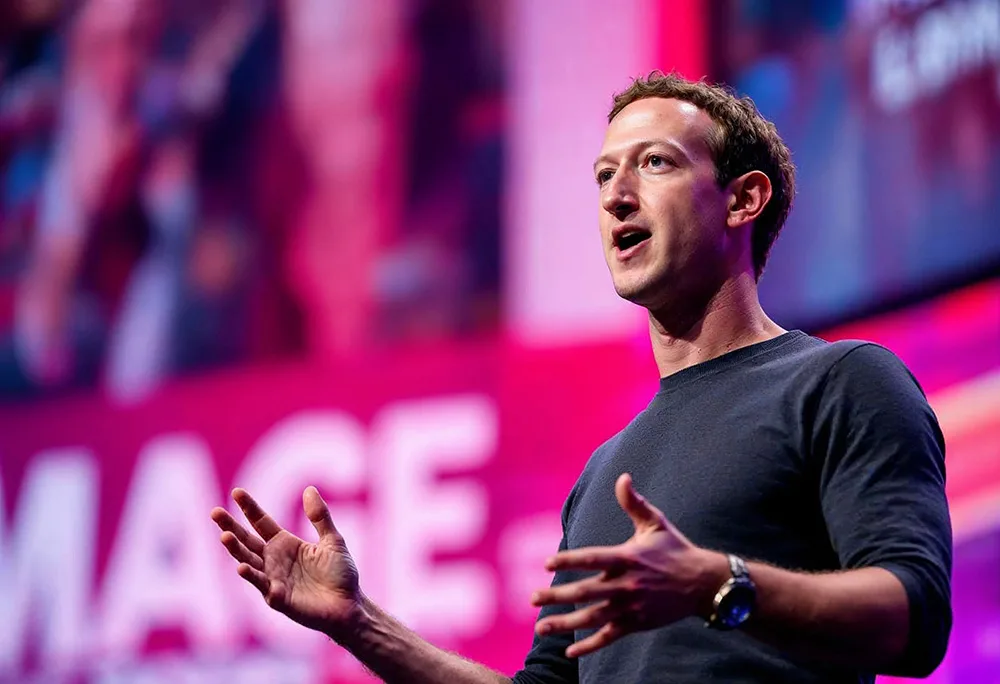

Senior Editor, Industrial Marketing Solution Expert
Mark Zuckerberg has built one of the most influential technology empires in modern history, transforming from a college student with a simple idea into the CEO of a trillion-dollar company that connects billions of people worldwide. The story of Mark Zuckerberg companies is not just about Facebook’s meteoric rise but about a visionary leader who has consistently pushed the boundaries of what’s possible in the digital realm through strategic acquisitions, innovative product development, and bold investments in emerging technologies.
Mark Elliot Zuckerberg was born on May 14, 1984, in White Plains, New York, to parents who fostered his early fascination with technology. His father, Edward Zuckerberg, was a dentist, while his mother, Karen Kempner, worked as a psychiatrist. Growing up in Dobbs Ferry, a supportive and intellectually stimulating environment, Mark showed an early aptitude for programming that would later define his career trajectory.
By age 10, Mark had already begun exploring programming, with his father introducing him to Atari BASIC Programming in the 1990s. This early exposure to coding laid the foundation for what would become one of the most successful technology careers in history. His childhood was marked by an insatiable curiosity about computers and software development, traits that would prove instrumental in his later success.
As a Harvard College student studying computer science and psychology, Mark Zuckerberg launched “thefacebook.com” from his dormitory room on February 4, 2004. Working alongside fellow Harvard students Andrew McCollum, Dustin Moskovitz, and Chris Hughes, Zuckerberg created what would become the world’s largest social networking platform.
The platform’s initial success was immediate and remarkable. Within the first two weeks of launch, more than two-thirds of Harvard’s student body had signed up for the service. Recognizing the potential for expansion, Zuckerberg and his team quickly spread Facebook to other Ivy League institutions, including Stanford, Columbia, and Yale, before expanding to other colleges and universities across the Boston area.
By the beginning of summer 2004, Facebook had launched at nearly 30 schools. The rapid growth prompted Zuckerberg to move to Palo Alto, California, with Moskovitz and other team members, where they leased a small house that served as their first official office. This move to Silicon Valley proved pivotal when Zuckerberg met investor Peter Thiel, who provided crucial early funding for the company’s expansion.
In 2021, Facebook officially rebranded as Meta Platforms, marking a strategic shift toward building the metaverse and representing Mark Zuckerberg’s vision for the future of human connection. Currently valued at approximately $800 billion, Meta stands as one of the world’s most valuable technology companies, with Zuckerberg owning roughly 12% of the company’s stock.
The transformation to Meta represents more than just a name change; it signifies a fundamental reimagining of how people will interact in digital spaces. According to Zuckerberg, the metaverse isn’t something a single company can build in isolation—it represents “the next chapter of the internet overall,” requiring collaboration across the entire technology industry.
Meta’s financial performance in 2024 has been nothing short of extraordinary. The company reported annual revenue of $164.501 billion, representing a 21.94% increase from the previous year. This growth trajectory demonstrates the strength of Meta’s core business model and its ability to adapt to changing market conditions.
The fourth quarter of 2024 alone saw Meta generate $48.39 billion in revenue, a 21% year-over-year increase, while posting a profit of $20.84 billion, representing a 49% year-over-year increase. These figures significantly exceeded Wall Street expectations, with earnings per share reaching $8.02 compared to analyst estimates of $6.76.
Meta’s advertising business remains the primary revenue driver, accounting for 96% of total revenue. The company’s family of apps, including Facebook, Instagram, WhatsApp, and Messenger, continues to show strong user engagement, with ad impressions increasing by 6% year-over-year and the average price per ad rising by 14% in Q4 2024.
The growth of Mark Zuckerberg’s companies has been significantly accelerated through strategic acquisitions that have expanded Meta’s reach and capabilities. Since 2004, Meta has acquired over 80 companies, each contributing to the broader vision of connecting people and building the future of digital interaction.
One of the most successful acquisitions in technology history, Instagram was purchased by Facebook in 2012 for $1 billion, just two years after its inception. This acquisition proved to be extraordinarily prescient, as Instagram now boasts over 2.3 billion active users and is valued at approximately $102 billion. The platform has become a crucial component of Meta’s advertising ecosystem and a primary driver of user engagement, particularly among younger demographics.
In 2014, Facebook acquired WhatsApp for over $21 billion, marking one of the most significant technology acquisitions in history at the time. This purchase significantly surpassed other major tech acquisitions of the era, including Google’s $3 billion acquisition of Nest Labs. WhatsApp remains one of the world’s most popular messaging applications, with 2.2 billion users globally, and serves as a critical component of Meta’s global communication infrastructure.
Facebook’s 2014 acquisition of Oculus VR for $2 billion marked the beginning of its serious investment in virtual reality technology. This purchase laid the foundation for what would eventually become Meta’s Reality Labs division and its ambitious metaverse initiatives. The acquisition has evolved into a comprehensive VR ecosystem that continues to push the boundaries of immersive technology.
Meta’s Reality Labs division represents the company’s most ambitious technological investment, focusing on the development of augmented reality (AR) and virtual reality (VR) technologies. In 2024, Reality Labs sales grew more than 40% compared to 2023, demonstrating strong momentum in the VR and AR markets.
The division has been instrumental in developing cutting-edge products, such as the Quest 3 VR headset, which became the top-selling games console on Amazon US in 2024, despite launching only in October. The Ray-Ban Meta smart glasses have also exceeded expectations, with sales greatly surpassing Meta’s original projections.
Mark Zuckerberg has positioned artificial intelligence as a cornerstone of Meta’s future strategy. In 2025, the company plans to invest between $60 billion and $ 65 billion in capital expenditures, with a significant portion dedicated to AI infrastructure and development. This massive investment includes building a 2GW+ data center that would cover a substantial portion of Manhattan and deploying over 1.3 million GPUs by the end of 2025.
The company’s Llama AI models have been downloaded more than a billion times worldwide since their launch in 2023, demonstrating the success of Meta’s open-source AI strategy. Zuckerberg expects Meta AI to become the leading assistant serving more than 1 billion people by 2025, with Llama 4 positioned to become the leading state-of-the-art AI model.
Facebook remains the cornerstone of Mark Zuckerberg’s digital empire, with approximately 3.07 billion monthly active users as of the fourth quarter of 2023. The platform has evolved significantly from its college-focused origins to become a global communication and content-sharing platform that serves users across all demographics.
The platform’s user base continues to grow, albeit at a more measured pace than in its early years. The fastest annual growth occurred in 2012, with a 24.97% increase. Recent years have shown more stable growth patterns, with 2023 marking a 3.44% year-over-year increase.
Facebook’s influence extends far beyond simple social networking. The platform has become a crucial tool for businesses, with over 4 million advertisers using Meta’s Advantage+ creative GenAI tools to power their campaigns. This business ecosystem generates substantial revenue while providing valuable services to millions of small and medium-sized enterprises worldwide.
Instagram has evolved into much more than a photo-sharing application, becoming a comprehensive platform for visual storytelling, commerce, and content creation. With over 2 billion monthly active users, Instagram represents one of the most successful acquisitions in technology history.
The platform’s evolution has been marked by strategic feature additions that have kept it competitive in the rapidly changing social media landscape. The introduction of Stories, Reels, and advanced commerce features has transformed Instagram into a multifaceted platform that serves creators, businesses, and consumers alike.
Instagram’s Reels feature, in particular, has been instrumental in competing with TikTok’s short-form video format. The platform prioritizes Reels content, and every minute, 138.9 million Reels are played across Facebook and Instagram, showcasing the immense scale of user engagement with this content format.
WhatsApp serves as Meta’s primary messaging platform, with over 2 billion daily active users worldwide. The platform has become an essential communication infrastructure in many countries, particularly in markets where traditional SMS messaging is expensive or unreliable.
The application’s success hinges on its simplicity, reliability, and end-to-end encryption, which enables users to enjoy secure communication capabilities. WhatsApp has also expanded beyond personal messaging to include business communication tools, allowing companies to connect directly with customers through the platform.
Launched in July 2023, Threads represents Meta’s latest attempt to capture the microblogging market. Built by the Instagram team, Threads is designed to expand on Instagram’s strengths while focusing on text-based content and real-time conversations.
The platform’s growth has been remarkable, reaching 320 million monthly active users by January 2025, with nearly one million new signups each day. Threads experienced its most significant growth period between August and October 2024, adding 75 million users during this timeframe, partly due to X (formerly Twitter) experiencing temporary bans in specific markets, such as Brazil.
Mark Zuckerberg expects Threads to continue its growth trajectory, aiming to become Meta’s next primary social application, with the ambitious goal of reaching one billion users. The platform’s integration with Instagram’s existing user base and its focus on positive, constructive conversations position it well for continued expansion.

The Mark Zuckerberg company portfolio extends far beyond social media into cutting-edge artificial intelligence and machine learning technologies. Meta’s AI initiatives encompass a wide range of technologies, from content recommendation algorithms to advanced language models and computer vision systems.
Meta’s AI Studio represents a groundbreaking platform that enables AI creation across all Meta products, featuring a user-friendly interface that allows non-programmers to build AI applications. The company has also developed Meta AI, an innovative assistant that uses Llama technology to provide human-like interactions and real-time information.
The company’s investment in AI talent and infrastructure is substantial, with plans to significantly expand its AI teams in 2025. Meta’s approach to AI development emphasizes open-source collaboration, making advanced AI tools accessible to developers and researchers worldwide.
Meta’s investment in VR and AR technology represents one of the most ambitious bets in the technology industry. The company’s Reality Labs division continues to push the boundaries of immersive technology, developing products that could fundamentally change how people interact with digital content.
The Meta Quest series of VR headsets has established the company as a leader in consumer virtual reality (VR) technology. The Quest 3S, launched in October 2024, became the top-selling game console on Amazon in the US despite its late-year release, demonstrating strong consumer demand for VR experiences.
Looking ahead, Meta is developing at least six new AI-powered wearables for 2025, including Oakley-styled AR glasses designed specifically for athletes. These products represent the company’s vision for seamlessly integrating digital experiences into daily life.
The Ray-Ban Meta smart glasses have emerged as one of Meta’s most successful hardware products, with sales significantly exceeding original expectations. These glasses demonstrate the potential for mainstream adoption of wearable technology when it is designed with both fashion and functionality in mind.
Meta’s Orion glasses project represents the company’s vision for fully holographic smart glasses that can project 3D holograms into the real world. While still in the prototype phase, these glasses could revolutionize virtual communication by allowing users to engage in holographic conversations regardless of physical location.

Beyond his business ventures, Mark Zuckerberg has committed to using his wealth for philanthropic purposes through the Chan Zuckerberg Initiative (CZI), which he founded in 2015 alongside his wife, Priscilla Chan. The initiative represents one of the most ambitious philanthropic efforts in modern history, with the couple pledging to donate 99% of their Facebook shares throughout their lifetime.
The Chan Zuckerberg Initiative focuses on three primary areas: science, education, and community development. Since its launch, CZI has committed over $7.22 billion in grants to organizations working toward these goals, making it one of the largest philanthropic organizations in the world.
CZI’s scientific initiatives aim to cure, prevent, or manage all diseases by the end of the century. The organization has committed $3 billion to basic research over the past decade, with a focus on bringing together professionals from multiple disciplines, including engineers, computer scientists, biologists, and chemists.
The Chan Zuckerberg Biohub, established in partnership with Stanford University, the University of California, San Francisco, and the University of California, Berkeley, represents a $600 million investment in collaborative research. The facility focuses on creating a “Cell Atlas” that maps cellular machinery in unprecedented detail and develops new approaches for making drugs, diagnostic tests, and vaccines.
The initiative’s education work focuses on personalized learning technologies that adapt to individual student needs. This represents a significant shift from Zuckerberg’s earlier educational philanthropy, which focused on traditional reform strategies, such as charter schools and standardized testing.
CZI’s approach to education emphasizes developing software that understands how students learn best and where they need to focus their attention. This technology-driven approach aims to make education more effective and accessible for students from all backgrounds.
Through the CZI Community Fund, the organization supports local organizations in San Mateo County that are working to create a more equitable and just community. In 2024, CZI supported 45 organizations through two-year grants, with a focus on increasing access to housing, healthcare, education, and job training.
The Community Fund employs participatory grantmaking practices, involving community members with lived experience in the decision-making process. This approach ensures that funding decisions reflect the actual needs and priorities of the communities being served.
Mark Zuckerberg’s leadership philosophy centers on rapid iteration rather than perfectionism. He has explicitly positioned Meta as “the opposite of Apple” in terms of product development methodology, emphasizing the importance of shipping products quickly and refining them based on real-world feedback.
This approach reflects Zuckerberg’s belief that waiting for perfection before release can be counterproductive to innovation. Instead, Meta’s culture prioritizes shipping products and learning from user interactions over theoretical projections about how people might use them.
Zuckerberg’s leadership is characterized by his willingness to make bold, long-term bets on emerging technologies. His investment in VR and AR technology, years before these markets became mainstream, demonstrates his ability to identify and invest in transformative technologies.
His approach to risk-taking is encapsulated in one of his most famous quotes: “The biggest risk is not taking any risk… In a world that’s changing quickly, the only strategy that is guaranteed to fail is not taking risks.” This philosophy has guided Meta’s expansion into new markets and technologies.
Throughout his career, Zuckerberg has consistently focused on helping people connect and build communities. This mission has remained constant even as the company has evolved from a simple social network to a comprehensive technology platform.
His vision for the metaverse represents an extension of this core mission, imagining a future where virtual and physical worlds merge to create new opportunities for human connection and collaboration.

The Mark Zuckerberg companies have faced significant regulatory scrutiny over the years, particularly regarding data privacy and competitive practices. The Cambridge Analytica scandal highlighted concerns about how user data was being collected and used, leading to increased regulatory oversight and substantial fines.
Meta has invested heavily in privacy and security infrastructure, implementing end-to-end encryption across its messaging platforms and developing new privacy-focused features. The company has also worked to increase transparency around its data practices and content moderation policies.
As Meta’s platforms have grown, they have faced increasing competition from newer social media platforms, particularly TikTok’s appeal to younger users. Facebook, in particular, has struggled to maintain relevance among Generation Z users, with 72% of American teens preferring TikTok while only 32% actively use Facebook.
To address these challenges, Zuckerberg has announced plans to restore Facebook to its “original essence” by 2025, focusing on authentic interactions and community building rather than trying to imitate competing platforms.
The development of the metaverse faces significant technical and adoption challenges. Creating virtual worlds that can support millions of simultaneous users requires unprecedented investments in infrastructure and technological innovations.
Privacy and security concerns are particularly acute in the metaverse, where users will share even more personal information and behavioral data. Ensuring interoperability between different metaverse platforms while maintaining security and user control remains a significant challenge.
Mark Zuckerberg has positioned 2025 as “a defining year for AI,” with ambitious goals that include making Meta AI the leading assistant serving more than 1 billion people. The company’s massive infrastructure investments, including plans to deploy over 1.3 million GPUs, demonstrate its commitment to AI leadership.
Meta’s open-source approach to AI development, exemplified by the Llama models, represents a strategic differentiator from competitors who keep their AI systems proprietary. This approach could accelerate AI innovation while fostering developer loyalty and strengthening the ecosystem.
Despite current challenges, Meta continues to invest heavily in the development of the metaverse. The company’s Reality Labs division is developing new VR and AR products, including the ambitious Orion holographic glasses project.
The success of products like the Quest 3 and Ray-Ban Meta glasses suggests that consumer interest in immersive technology is growing. As the technology improves and costs decrease, mainstream adoption of VR and AR experiences is likely to accelerate.
Meta continues to expand its presence in emerging markets, where much of the world’s population growth is expected to occur. The company’s focus on making internet access more affordable and accessible through initiatives like Internet.org demonstrates its commitment to global expansion.
The growth of platforms like WhatsApp in international markets gives Meta a strong position in regions where traditional social media platforms may be less dominant.
The story of Mark Zuckerberg’s companies represents one of the most remarkable entrepreneurial journeys in modern history. From a college dormitory project to a trillion-dollar technology empire, Zuckerberg has consistently demonstrated the ability to identify transformative technologies and build them into global platforms that connect billions of people.
Mark Zuckerberg’s current portfolio of companies extends far beyond social media to encompass artificial intelligence, virtual reality, messaging, and philanthropic initiatives. With a current net worth of approximately $245 billion, Zuckerberg has used his success to invest in ambitious projects that could shape the future of human interaction and technological development.
As we look toward the future, the Mark Zuckerberg company ecosystem is positioned to play a crucial role in defining how people connect, work, and interact in an increasingly digital world. The massive investments in AI infrastructure, the development of immersive technologies, and the commitment to open-source innovation suggest that Meta’s influence on technology and society will continue to grow.
The challenges facing Mark Zuckerberg’s companies are significant, from regulatory scrutiny to technological hurdles to competitive pressures from emerging platforms. However, Zuckerberg’s track record of adaptation, innovation, and long-term thinking suggests that his companies are well-positioned to navigate these challenges while continuing to push the boundaries of what’s possible in the digital realm.
The Mark ZuckerbergMark Zuckerberg company’s legacy is still being written, but its impact on how billions of people communicate, share information, and build communities is already profound and lasting. As the metaverse, artificial intelligence, and immersive technologies continue to evolve, companies founded and led by Mark Zuckerberg are likely to remain at the forefront of these transformational changes, continuing to shape the future of human connection in the digital age.
Through strategic acquisitions, bold investments in emerging technologies, and a consistent focus on bringing people together, Mark Zuckerberg has built a technology empire that extends far beyond its original social networking roots. The comprehensive ecosystem of Mark Zuckerberg’s companies represents not just a business success story but a vision for how technology can be used to create more connected, informed, and empowered communities around the world.